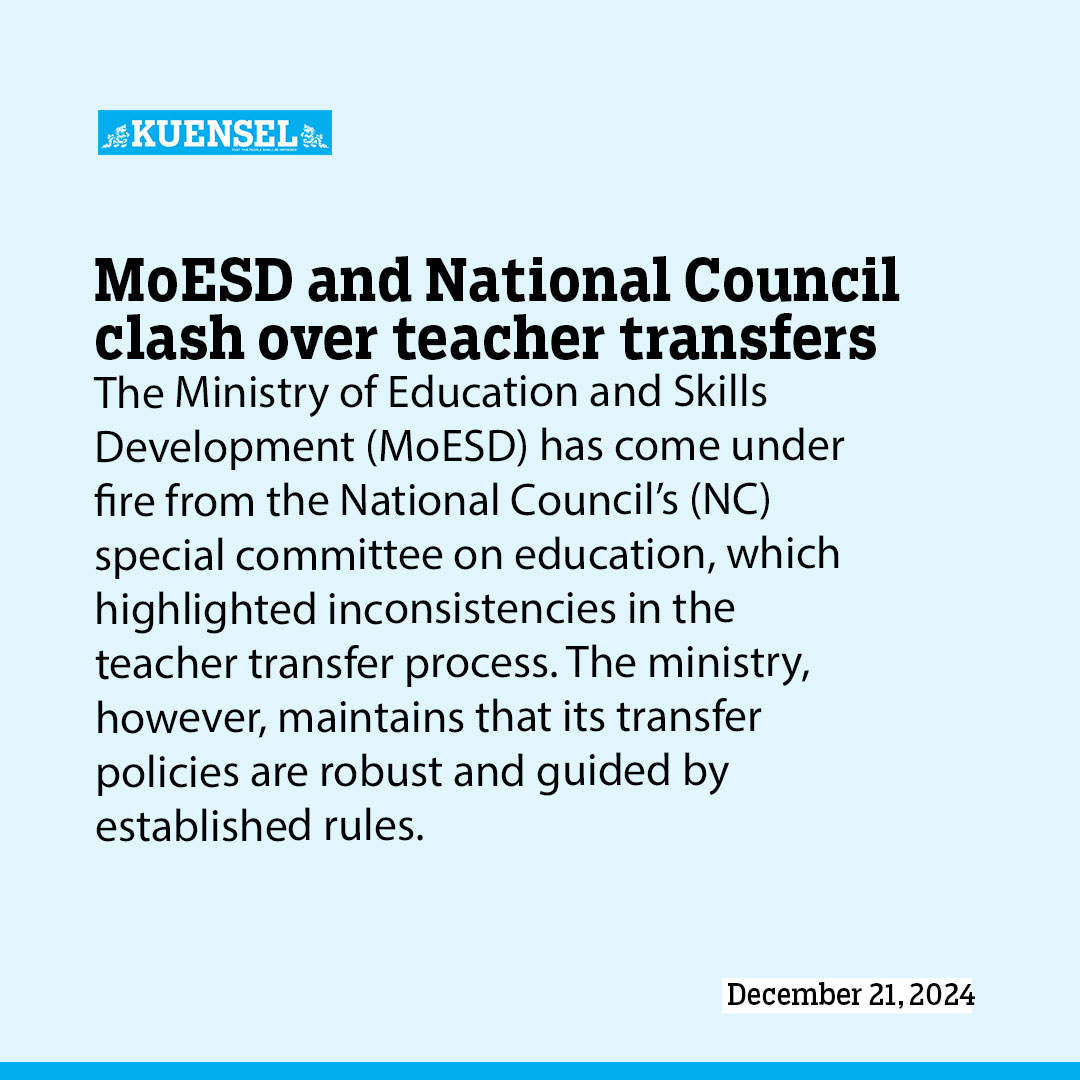KP Sharma
The Ministry of Education and Skills Development (MoESD) has come under fire from the National Council’s (NC) special committee on education, which highlighted inconsistencies in the teacher transfer process. The ministry, however, maintains that its transfer policies are robust and guided by established rules.
The NC committee had raised concerns about inconsistent transfer and promotion practices, which it said have caused widespread dissatisfaction and demotivation among educators.
The committee also alleged that the ministry’s practices failed to comply with the Bhutan Civil Service Rules and Regulations 2023, which provides clear guidelines for teacher transfers.
However, the MoESD stated that teacher transfers are an annual process and are guided by well-established guidelines endorsed by the Royal Civil Service Commission (RCSC).
It stated that transfers are carried out through a systematic process, starting with the school administration, followed by the dzongkhag human resource committee, the transfer sub-committee at the ministry—which includes teachers, principals, and DEOs and the ministry’s human resource committee.
The ministry argued that this process ensures fairness and that any claims of unfairness are unfounded, citing annual HR audits conducted by RCSC as evidence.
Despite these assurances, the NC committee raised concerns that such practices could lead to an unequal distribution of teachers, which could further exacerbate existing challenges in the system.
“Such incoherent and inconsistent application of policies on teacher transfer could lead to overstaffing or understaffing,” the committee stated.
When the findings on inefficient deployment were cross-checked with teachers from different parts of the country, some reported that despite being identified as excess in their current dzongkhag, they were denied transfers to other dzongkhags due to a shortage of subject-specific vacancies.
However, some of those identified as excess were redeployed within their respective dzongkhags.
But the ministry said that there are no surplus teachers in any dzongkhag or thromde and dismissed the claim made by the teachers. “The electronic deployment system ensures precise teacher placement based on school requirements effectively preventing deployment of any excess teachers.”
The ministry stated that the deployment system and accompanying rules are designed to ensure stability, which does not permit frequent redeployment.
Highlighting critical issues, the committee said that the mismatch in teacher placements often forces teachers to teach subjects outside their area of specialisation, either temporarily or due to staffing shortages.
For instance, citing the 37th Education Policy Guidelines and Instructions, it pointed out that while ICT has been made compulsory from class PP onwards, primary schools still lack dedicated ICT teachers. In such cases, the committee stated that general teachers are assigned to teach ICT.
Similar discrepancies were found in teacher placements, with primary teachers often deployed to secondary schools and vice versa.
The NC committee urged the ministry to revisit its teacher deployment system to ensure educators are assigned according to schools’ specific needs. It also stressed the importance of addressing urban-rural disparities, stating that many rural teachers remain in their postings for years without reassignment.
“This mismatch in qualifications and experience can negatively impact teacher performance and, consequently, the quality of education in the classroom,” the committee stated.
As per the initial information shared by the MoESD, a total of 312 teachers, including both regular and contract teachers, were granted transfers this year.


